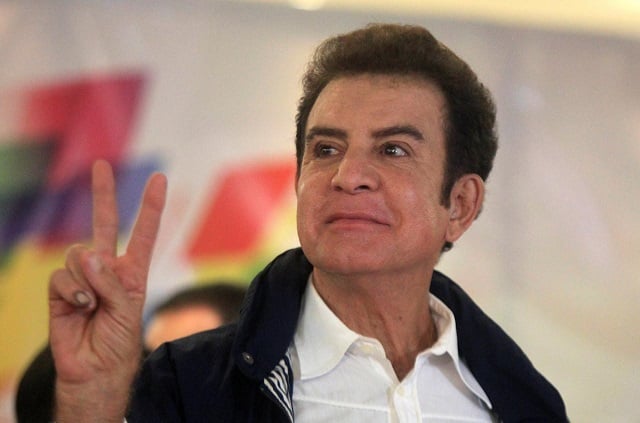
With 57 per cent of ballot boxes counted, Salvador Nasralla was ahead with an almost 5 point margin at 45 per cent, according to the first official results, released nearly 10 hours after voting ended. "I am the new president-elect of Honduras," Nasralla, 64, wrote on Twitter after the results were announced.
Earlier, he and President Juan Orlando Hernandez had held competing events claiming victory during the long wait. Nasralla, who helms the Opposition Alliance Against the Dictatorship, had 45.17 per cent of the vote, while the National Party's Hernandez had 40.21 per cent, according to the country's election tribunal.
'Trash islands' off Central America indicate ocean pollution problem
A victory for Nasralla would be a blow for the United States, which sees Hernandez as a reliable ally in tackling drug trafficking, gangs and migration. The United States has longstanding military ties to Honduras and few ideological allies among the current crop of Central American presidents.
The attempt by Hernandez to clinch a second term was divisive in the poor Central American country. Honduras is still trying to overcome the after effects of a 2009 coup that ensued when former President Manuel Zelaya, an ally of late Venezuelan leader Hugo Chavez, proposed a referendum on lifting term limits.
Zelaya was at Nasralla's side on Monday morning. As coordinator and, many believe, the true power in the Alliance, Zelaya would be a major beneficiary if Nasralla wins.
Zelaya was ditched amid fears he was plotting to adopt socialist policies in Honduras, a country where a conservative business class wields enormous power. The United States wrestled with how to handle the coup, and Zelaya remains a bogeyman for US officials and many of Honduras' elite.
"We won," Zelaya wrote on Twitter. The son of a wealthy landowner, Zelaya nearly returned to political prominence in the 2013 election, when his wife, Xiomara Castro, lost out to Hernandez.
With his big black mustache and penchant for cowboy hats, he is a larger than life personality who splits opinion. Several members of the country's business elite told Reuters that Zelaya's reputation for being a rabble rouser was ill-founded and out of date. Instead, they said, he was simply opportunistic, adding that the United States disliked him for being 'chaotic' and untrustworthy.
Nasralla, on the other hand, is one of the country's best known faces as the host of game shows featuring scantily-clad women by his side. With his booming voice and finely coiffed hair, he looked poised to be the latest entertainment star in the Americas to breach the upper echelons of political power.
Like US President Donald Trump, Nasralla's bid resonated with voters tired of two-party dominance. Polls, including one released after voting ended on Sunday, had shown Hernandez likely to easily win a second term that would have made him the first president re-elected since Honduras shed military rule nearly four decades ago.
The bid was made possible by a contentious 2015 decision by the Supreme Court. After the results were announced, Hernandez delivered a brief statement, reiterating that he had won, and urging supporters to wait for fresh results to come in from rural areas, where he enjoys greater support.
Paradise Papers reveal hidden wealth of global elite
Fight against gangs
Nasralla promises to put an end to years of violence, poverty and graft, and says he will ask the United Nations to install an anti-graft body, similar to one operating in Guatemala, to probe and bring charges in corruption cases. He would maintain the Military Police created by Hernandez but wants to start a community police force to work in violent slums.
He would also continue firing corrupt national police officers, while hiring up to 25,000 new recruits. Plans for the economy are vague, but the coalition has proposed lowering sales tax and slashing a Hernandez-imposed corporate levy that has enraged the private sector.
Hernandez, 49, has been credited with lowering a sky-high murder rate, accelerating economic growth and cutting the deficit since he took office in 2014, but has also been hurt by accusations of ties to drug and graft-stained financing and claims he is plotting a power grab.
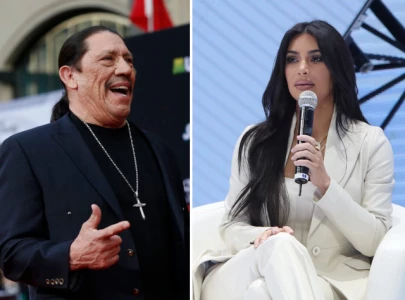




1724994274-0/BeFunky-(12)1724994274-0-270x192.webp)
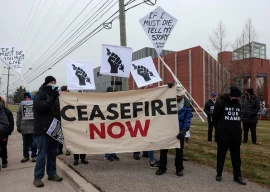



1736939933-0/sidra--(8)1736939933-0-270x192.webp)
1732012115-0/Untitled-design-(14)1732012115-0-270x192.webp)
1736844405-0/Express-Tribune-(2)1736844405-0-270x192.webp)

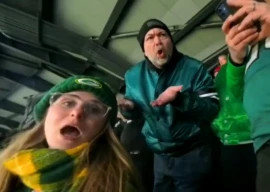
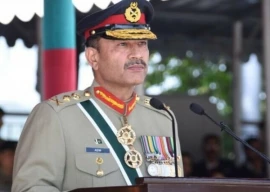







COMMENTS
Comments are moderated and generally will be posted if they are on-topic and not abusive.
For more information, please see our Comments FAQ